Fleurs du Mal Magazine


Arcana: A Stephen Jonas Reader is the first selection of his work to appear in 25 years.
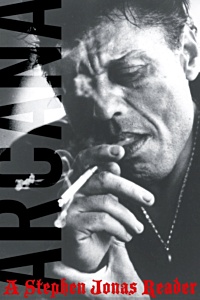 With a biographical introduction and a postscript delving into recent discoveries concerning the poet’s birthplace and background, Arcana is a crucial corrective to our understanding of post-war American poetry, restoring Jonas to his rightful place among the period’s vanguard.
With a biographical introduction and a postscript delving into recent discoveries concerning the poet’s birthplace and background, Arcana is a crucial corrective to our understanding of post-war American poetry, restoring Jonas to his rightful place among the period’s vanguard.
Featuring previously uncollected and unpublished work, a section of never-before-seen facsimiles from notebooks, and a generous selection from his innovative serial poem Exercises for Ear (1968), Arcana is a much-needed retrieval of an overlooked American poet, as well as a valuable contribution to African American and Queer literature.
Beginning in the 1950s until his untimely death at age 49, Stephen Jonas (1921-1970) was an influential if underground figure of the New American Poetry. A gay, African-American poet of self-obscured origins, heavily influenced by Ezra Pound and Charles Olson, the Boston-based Jonas was a pioneer of the serial poem and an erudite mentor to such acknowledged masters as Jack Spicer and John Wieners, even as he lived a shadowy existence among drug addicts, thieves, and hustlers.
Major publications include Love, the Poem, the Sea & Other Pieces Examined by Me (1957), Exerces for Ear (1968), and Selected Poems (1994).
“A true poet of modern classic culture in mid-twentieth century U.S.A.”—Allen Ginsberg
Title: Arcana
Subtitle: A Stephen Jonas Reader
Author: Stephen Jonas
Edited by Garrett Caples, Derek Fenner, David Rich, Joseph Torra
Introduction by Joseph Torra
Afterword by David Rich
Publisher: City Lights Publishers
African American poetry
Format Paperback
ISBN-10 0872867919
ISBN-13 9780872867918
Publication Date: 16 April 2019
Main content page count 264
List Price $21.95
# new books
Arcana
A Stephen Jonas Reader
• fleursdumal.nl magazine
More in: - Book News, Archive I-J, Archive I-J, Art & Literature News
`Zullen we doen wie het eerst bij de kerk is?’ vraagt Tijger.
`Goed’, zegt Mels. `Maar ik wil twintig meter voorsprong. Mijn fiets is niet zo goed als die van jou.’
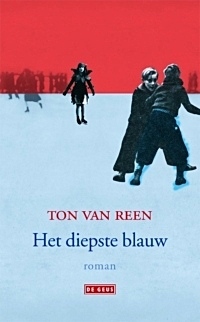 `Jij mag mijn fiets.’
`Jij mag mijn fiets.’
`Dan starten we gelijk.’
`Jullie wachten maar op me bij de kerk’, zegt Thija.
`Ik tel tot drie’, roept Tijger.
Bij `drie’ vliegen ze ervandoor. De betere fiets helpt Mels niet. Tijger gaat op kop. Maar Mels geeft zich nog niet gewonnen.
Ze naderen het dorp. In volle vaart schiet Tijger van het pad, zoeft rakelings langs de Wijer en vindt het pad terug. Bijna had Mels hem ingehaald.
De kerk is al dichtbij. Het pad wordt breder. Op het laatste stuk van het pad, vanaf het kerkhof tot de kerk, ligt grind. Daar kunnen ze nog harder.
Tijger zoeft de straat op. Een paar tellen later gevolgd door Mels.
Hij hoort een klap. Roepen. Schelden.
Tijger ligt bewegingloos op straat. De fiets ligt verwrongen onder het wiel van de tractor. Mensen schieten te hulp. Vrouwen met handdoeken en verband. Mannen stropen in paniek hun mouwen op.
De boer probeert de fiets onder het tractorwiel vandaan te trekken.
Mels wil naar zijn vriend, maar de mensen duwen hem aan de kant. Hij ziet hoe een straaltje bloed uit het oor van Tijger loopt.
Thija slaat een arm om Mels heen. Hij ziet haar grote ogen waar de tranen uit stromen.
`Hij is dood’, horen ze de man zeggen die zijn oor aan Tijgers borst houdt.
`Hij is dood’, zegt de man tegen Tijgers moeder.
`Hij is dood’, fluistert Mels.
Thija’s tranen vloeien langs haar hals en vormen een donkere vlek op haar lichtgroene blouse.
Een politieman stuurt alle kinderen weg. Het helpt niet als ze zeggen dat Tijger hun vriend is.
`Jullie moeten weg’, zegt de agent. `En hij heet geen Tijger. Hij heet Bart.’
Ze gaan op de bank voor de kerk zitten en zien hoe een ambulance voorrijdt, hoe Tijger op een brancard wordt gelegd en hoe hij het dorp uit wordt gereden.
De moeder van Mels komt naar hem en Thija toe, gaat bij hen zitten en legt een arm om hen heen. Samen zitten ze op de bank, totdat het donker wordt. En dan blijven ze ook nog zitten, omdat ze weer moeten huilen als ze steeds opnieuw het ijselijke gillen van Tijgers moeder horen. De dokter is bij haar, en de pastoor, maar geen pillen en geen gebeden krijgen haar stil.
Dan komt ook de moeder van Thija bij hen zitten. Zo zitten ze daar uren, in het almaar killer wordende maanlicht. En opeens begint Thija’s moeder te vertellen in haar wonderlijke taal die een mengeling is van Engels, Nederlands, Chinees en gebarentaal. Haar woorden verdoven de pijn. Ze vertelt dat ze als meisje leerde zwemmen in de Jangtsekiang. Dat ze als kind met haar ouders uit China is gevlucht, en dat ze het niet erg vindt om niet in China te wonen, maar dat ze zo dolgraag dat plekje aan de Gele Rivier terug zou willen zien.
Pas als beide wijzers van de kerkklok op twaalf staan, gaan ze naar huis.
Als Thija wegloopt, ziet Mels weer hoe dun ze is. Ze is niet meer dan vel over been.
De volgende ochtend wordt er op school over Tijger gesproken. De juf vertelt verhalen over de overstap van het leven naar de dood. En dan moeten ze allemaal huilen. De juf kan zo goed vertellen dat zelfs de meisjes die een hekel hadden aan Tijger moeten huilen.
Ze maken een rouwkrans en leggen die op Tijgers bank. Daar zal hij de rest van het schooljaar blijven liggen.
Na school gaan Mels en Thija naar het molenhuis van grootvader Bernhard.
Ze klimmen naar de doodstille zolder.
`Hoe gaat het in China als kinderen doodgaan?’ vraagt Mels.
`Vraag je dat aan mij?’
`Jij was er toch? Tenminste, jouw moeder.’
`Kinderen begraven ze in glazen kisten.’
`Net als Sneeuwwitje?’
`Soms worden ze verbrand, zodat de ziel van de overledene terug kan keren in een ander lichaam.’
`Kan Tijger dat ook?’
`Hij zal wel moeten’, zegt Thija. `We kunnen niet zonder hem.’
Mels ziet dat er tranen in haar ogen staan en daarom moeten ze opeens weer allebei huilen.
`Hij moet terugkomen’, zegt Mels.
`Misschien is hij al terug.’ Thija wijst op de grote vlinder die op de ruit gaat zitten en met zijn grote gekleurde vleugels naar hen wuift.
`Zo’n grote kapel heb ik hier nog nooit gezien’, zegt Mels. `Kapellen zijn heel zeldzaam. Denk je écht dat hij het is?’
`Ik denk het wel’, zegt Thija. `In China leven de zielen van gestorven kinderen ook voort in vlinders. En dan vliegen ze wuivend door het dorp. Je ziet toch dat hij naar ons wuift! Ik vind het echt iets voor Tijger.’
Bij de begrafenis loopt Thija aan de hand van haar moeder. Mels loopt ingehaakt in de arm van zijn moeder, die zachtjes huilt, maar toch zo hard dat iedereen het hoort. Ze kan er niets aan doen.
Mels huilt niet. En ook Thija huilt niet meer. Het meer achter haar ogen is leeg. Maar haar ogen staan schuiner dan ooit, alsof ze bij de begrafenis van Tijger extra mooi wil zijn.
De kist van Tijger wordt gedragen door mannen uit de buurt.
Het hele dorp loopt van de kerk naar het kerkhof. Ook de boer die Tijger doodgereden heeft. Hij heeft een vreemd bleek voorhoofd, precies waar zijn pet gewoonlijk staat, de rest van zijn gezicht is bruingebrand door de zon. Hij houdt de pet in de hand en knijpt hem bijna fijn.
De mannen laten Tijgers kist in het graf zakken. Mels probeert naar zichzelf te luisteren, maar zo stil is het in zijn hoofd nog nooit geweest.
Thija fluistert iets. Haar mond gaat open. Ze wijst. Dan pas ziet hij de kapel met grote gekleurde vleugels die over het kerkhof vliegt en tussen de bomen verdwijnt. Tijger is voorgoed vertrokken.
Ton van Reen: Het diepste blauw (097)
wordt vervolgd
• fleursdumal.nl magazine
More in: - Book News, - Het diepste blauw, Archive Q-R, Reen, Ton van

Pol Kurucz: The Normals
The Normals is a heteroclit family of excentric women going abot their lives, free, challenging aesthetic, gender and social norms.
Pol Kurucz was born with two different names to a French mother in a Hungarian hospital. His childhood hyperactivity was treated with theater, and theater was later treated with finance. By 27 he was a manager by day and a stage director by night. He then went on consecutive journeys to Bahrain and Brazil, to corporate islands and favelas. He has sailed on the shores of the adult industry and of militant feminism and launched a mainstream money making bar loss making in its indie art basement. Then he suddenly died of absurdity. Pol was reborn in 2015 and merged his two names and his contradictory lives into one where absurdity makes sense.
Today he works on eccentric fashion, celebrity and fine art projects in São Paulo and New York. His photos have been featured in over a hundred publications including: Vogue, ELLE, Glamour, Marie Claire, The Guardian, Dazed, Adobe Create, Hunger, Sleek, Nylon, Hi-Fructose, Galore. Pol’s works were exhibited worldwide in 72 galleries and cultural events in 2018 including: Juxtapoz Club House (Art Basel Miami), ArtExpo NYC, Red Dot Miami, Lincoln Center NYC, Shanghai Fashion Week, New York Fashion Week, Superchief Gallery Miami, Lumas Galleries worldwide, Democrart Galleries in Brazil and Pica Photo shows in China.
# more on website pol kurucz: www.polkurucz.com
(the normals: www.polkurucz.com/normals)
• fleursdumal.nl magazine
More in: Art & Literature News, FDM Art Gallery, Photography, Pol Kurucz, Surrealisme, THEATRE
Love, death, Bruce Willis, public urination, being a woman, love, The Nanny, love.
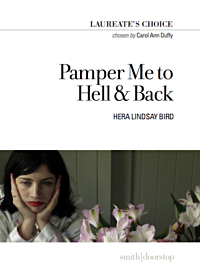 This pamphlet of poetry by Hera Lindsay Bird is a startling departure from her bestselling debut Hera Lindsay Bird by defying convention and remaining exactly the same, only worse. This collection, which focuses on love, childish behaviours, 90’s celebrity references and being a woman, is sure to confirm all your worst suspicions and prejudices.
This pamphlet of poetry by Hera Lindsay Bird is a startling departure from her bestselling debut Hera Lindsay Bird by defying convention and remaining exactly the same, only worse. This collection, which focuses on love, childish behaviours, 90’s celebrity references and being a woman, is sure to confirm all your worst suspicions and prejudices.
Selected in 2018 by Carol Ann Duffy as part of the Laureate’s Choice Collection. Carol Ann Duffy: “Without doubt the most arresting and original new young poet – on page and in performance – to arrive.”
Hera Lindsay Bird was born in Thames, NZ, in 1987 and lives in Wellington. Her debut book of verse, blithely titled Hera Lindsay Bird, was published in 2016 to immediate and vast acclaim, and won best first book of poetry at the 2017 Ockham New Zealand Book Awards.
Pamper Me to Hell & Back
Author: Hera Lindsay Bird
Published by Smith/Doorstop
(The Poetry Business)
Language: English
ISBN-10: 1910367842
ISBN-13: 978-1910367841
Paperback
30 pages
2018
£7.50
# new poetry
Hera Lindsay Bird
Pamper Me to Hell & Back
• fleursdumal.nl magazine
More in: - Book News, - Bookstores, Archive A-B, Archive A-B, Art & Literature News
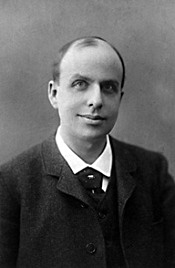
Singeries
Quand je te vois penché, mon mignon, tout en nage,
Sur le croûton de pain qui te sert de joujou,
Je me repens, mon Dieu, d’avoir pris pour un page
Ce qui n’était pourtant qu’un affreux sapajou.
C’est un maki mordant ses dix doigts avec rage,
Ce faune gentillet, taillé comme un bijou,
Un ouistiti grimpant aux barreaux de sa cage,
Un macaque à poil ras, un singe en acajou.
Ton masque enluminé, sillonné de grimaces,
Semble servir d’album à croquis aux limaces
Pour crayonner l’argent de leurs chemins crochus.
Et les casques noircis qui couronnent tes ongles,
Piqués dans tes cheveux brouillés comme des jungles,
Font penser que tu dois avoir les pieds fourchus.
Marcel Schwob
(1867-1905)
Singeries
Juin 1888
• fleursdumal.nl magazine
More in: #Editors Choice Archiv, Archive S-T, Archive S-T, Marcel Schwob
In In poëzie en oorlog onthult directeur Bas Kwakman van Poetry International op verrassende en soms ontluisterende wijze de wereld van de poëzie.
 Daarbij ontziet de schrijver niets en niemand, ook zichzelf niet. In poëzie en oorlog is alles geoorloofd.
Daarbij ontziet de schrijver niets en niemand, ook zichzelf niet. In poëzie en oorlog is alles geoorloofd.
Leidraad is de geschiedenis van het Poetry International Festival in Rotterdam, dat in 1970 in anarchie werd geboren en inmiddels wereldwijd een van de belangrijkste ontmoetingsplaatsen voor dichters en poëzieliefhebbers is geworden.
Gedreven door de liefde voor poëzie en een gezonde argwaan jegens het menselijke bedrijf daarachter beschrijft Kwakman met warmte, humor, kennis en verbazing zijn unieke ervaringen in de bijzondere wereld tussen de versregels.
Auteur: Bas Kwakman
In poëzie en oorlog.
Vijftig jaar Poetry International
Uitgeverij: De Arbeiderspers
NUR: 320
Paperback
ISBN: 9789029525602
Taal: Nederlands
Bladzijden: 400 pp.
Paperback
Literaire non-fictie
Prijs: € 24,99
Publicatiedatum: 21-05-2019
# new books
In poëzie en oorlog.
Vijftig jaar Poetry International
Bas Kwakman
• fleursdumal.nl magazine
More in: #More Poetry Archives, - Book Lovers, - Book News, Archive K-L, Art & Literature News, MODERN POETRY, Poetry International
Over a career that spans four decades and thirteen studio albums with Pet Shop Boys, Neil Tennant has consistently proved himself to be one of the most elegant and stylish of contemporary lyricists.
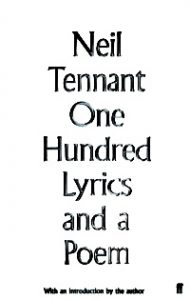 Arranged alphabetically, One Hundred Lyrics and a Poem presents an overview of his considerable achievement as a chronicler of modern life: the romance, the break-ups, the aspirations, the changing attitudes, the history, the politics, the pain.
Arranged alphabetically, One Hundred Lyrics and a Poem presents an overview of his considerable achievement as a chronicler of modern life: the romance, the break-ups, the aspirations, the changing attitudes, the history, the politics, the pain.
The landscape of Tennant’s lyrics is recognisably British in character – restrained and preoccupied with the mundane, occasionally satirical, yet also yearning for escape and theatrical release.
Often surprisingly revealing, this volume is contextualised by a personal commentary on each lyric and an introduction by the author which gives a fascinating insight into the process and genesis of writing.
Flamboyant, understated, celebratory and elegiac, Neil Tennant’s lyrics are a document of our times.
Everything I’ve ever done
Everything I ever do
Every place I’ve ever been
Everywhere I’m going to
One Hundred Lyrics and a Poem
Neil Tennant
Hardback
272 pages
English
Poetry
Published 01/11/2018
ISBN13 9780571348909
Publisher Faber & Faber Inc.
18,99 euro
# new books
One Hundred Lyrics and a Poem
Neil Tennant
• fleursdumal.nl magazine
More in: Archive S-T, Archive S-T, Art & Literature News, AUDIO, CINEMA, RADIO & TV, Pet Shop Boys
In Van Hieruit toont PARK het werk van negen in Tilburg woonachtige en werkzame kunstenaars. Met deze expositie wil PARK recht doen aan de gedachte Tilburg, stad van makers.
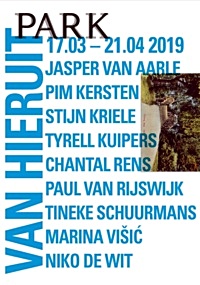 Al vele decennia is de stad rijk gevuld met generaties kunstenaars werkend in verschillende disciplines en expressievormen. In Van Hieruit wordt deze veelzijdigheid omarmd.
Al vele decennia is de stad rijk gevuld met generaties kunstenaars werkend in verschillende disciplines en expressievormen. In Van Hieruit wordt deze veelzijdigheid omarmd.
PARK handelt vanuit een typisch-Tilburgse makers mentaliteit. Ondanks bezuinigingen lijkt de stad zich hard te blijven maken voor de kunsten. En dat is belangrijk, want kunst heeft het zwaar te verduren. Ze moet functioneel toepasbaar zijn, betrokken zijn met de maatschappij – maar hier niet te aanstootgevend in zijn -, ze moet verbinden, economisch rendabel zijn en ook nog eens aantrekkelijk.
PARK biedt graag ruimte en tijd voor experiment. In deze tentoonstelling concentreert PARK zich op uiteenlopende perspectieven en diverse beroepspraktijken, om te openen in plaats van te vernauwen. Van Hieruit is een groepstentoonstelling gewijd aan nog niet eerder bij PARK getoond Tilburgs talent. De tentoonstelling laat als context een grote diversiteit in werk, leeftijd en media zien en beoogt het gesprek aan te gaan over de waarde van uiteenlopende zienswijzen, mentaliteiten en werkpraktijken. Van hieruit de wereld in.
VAN HIERUIT
tentoonstelling
17.03 2019 – 21.04 2019
Jasper van Aarle
Pim Kersten
Stijn Kriele
Tyrell Kuipers
Chantal Rens
Paul van Rijswijk
Tineke Schuurmans
Marina Višić
Niko de Wit
De opening op zaterdag 16 maart om 16.00 uur wordt verricht door wethouder van cultuur Marcelle Hendrickx. U bent van harte uitgenodigd.
PARK – Wilhelminapark 53 – 5041 ED Tilburg
Tijdens de tentoonstelling geopend:
vrijdag van 13.00 tot 17.00 uur
zaterdag van 13.00 tot 17.00 uur
zondag van 13.00 tot 17.00 uur
toegang is gratis
# meer informatie op website PARK
# Exposition
PARK
Platform for visual arts
Jasper van Aarle – Pim Kersten – Stijn Kriele – Tyrell Kuipers – Chantal Rens – Paul van Rijswijk – Tineke Schuurmans – Marina Višić – Niko de Wit
• fleursdumal.nl magazine
More in: Art & Literature News, Exhibition Archive, FDM Art Gallery, Linda Arts, Park
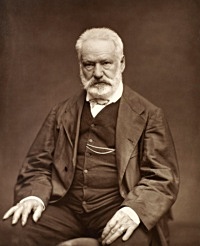
Il fait froid
L’hiver blanchit le dur chemin
Tes jours aux méchants sont en proie.
La bise mord ta douce main ;
La haine souffle sur ta joie.
La neige emplit le noir sillon.
La lumière est diminuée…
Ferme ta porte à l’aquilon !
Ferme ta vitre à la nuée !
Et puis laisse ton coeur ouvert !
Le coeur, c’est la sainte fenêtre.
Le soleil de brume est couvert ;
Mais Dieu va rayonner peut-être !
Doute du bonheur, fruit mortel ;
Doute de l’homme plein d’envie ;
Doute du prêtre et de l’autel ;
Mais crois à l’amour, ô ma vie !
Crois à l’amour, toujours entier,
Toujours brillant sous tous les voiles !
A l’amour, tison du foyer !
A l’amour, rayon des étoiles !
Aime, et ne désespère pas.
Dans ton âme, où parfois je passe,
Où mes vers chuchotent tout bas,
Laisse chaque chose à sa place.
La fidélité sans ennui,
La paix des vertus élevées,
Et l’indulgence pour autrui,
Eponge des fautes lavées.
Dans ta pensée où tout est beau,
Que rien ne tombe ou ne recule.
Fais de ton amour ton flambeau.
On s’éclaire de ce qui brûle.
A ces démons d’inimitié
Oppose ta douceur sereine,
Et reverse leur en pitié
Tout ce qu’ils t’ont vomi de haine.
La haine, c’est l’hiver du coeur.
Plains-les ! mais garde ton courage.
Garde ton sourire vainqueur ;
Bel arc-en-ciel, sors de l’orage !
Garde ton amour éternel.
L’hiver, l’astre éteint-il sa flamme ?
Dieu ne retire rien du ciel ;
Ne retire rien de ton âme !
Victor Hugo
(1802-1885)
Il fait froid
(Poème)
• fleursdumal.nl magazine
More in: Archive G-H, Archive G-H, Hugo, Victor, Victor Hugo
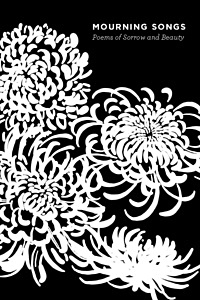 Who has not suffered grief?
Who has not suffered grief?
In Mourning Songs, the brilliant poet and editor Grace Schulman has gathered together the most moving poems about sorrow by the likes of Elizabeth Bishop, William Carlos Williams, Gwendolyn Brooks, Neruda, Catullus, Dylan Thomas, W. H. Auden, Shakespeare, Emily Dickinson, W. S. Merwin, Lorca, Denise Levertov, Keats, Hart Crane, Michael Palmer, Robert Frost, Hopkins, Hardy, Bei Dao, and Czeslaw Milosz—to name only some of the masters in this slim volume.
“The poems in this collection,” as Schulman notes in her introduction, “sing of grief as they praise life.” She notes: “As any bereaved survivor knows, there is no consolation. ‘Time doesn’t heal grief; it emphasizes it,’ wrote Marianne Moore.
The loss of a loved one never leaves us. We don’t want it to. In grief, one remembers the beloved. But running beside it, parallel to it, is the joy of existence, the love that causes pain of loss, the loss that enlarges us with the wonder of existence.”
Winner of the Poetry Society of America’s highest award, The Frost Medal, Grace Schulman is the author of seven poetry volumes as well as a book of essays and a new memoir, Strange Paradise: Portrait of a Marriage, about her life with her beloved late husband Jerome. She is a Distinguished Professor of English at Baruch College, CUNY, the former director of the Poetry Center, 92nd Street Y, and was for thirty-five years the poetry editor of The Nation.
Mourning Songs
Poems of sorrow and Beauty
Edited by Grace Schulman
Paperback
96 pages
Publisher: New Directions
Language: English
ISBN-10: 0811228665
ISBN-13: 978-0811228664
Product Dimensions: 4 x 6 inches
Price US 11.95
1 edition: May 28, 2019
# new books
Mourning Songs
Poetry
• fleursdumal.nl magazine
More in: - Book News, Archive S-T, Archive S-T, Art & Literature News, Danse Macabre
De herinnering aan de grote brand emotioneert hem. Hij merkt dat zijn hoofd gaat dazen, of er bijen in rond zoemen. Het zijn geen bijen, maar kinderstemmen. De school is uit.
 `Zit je hier al lang, opa?’ Het zijn Afke en Zhia. In hun kleurige jurken hinkelen ze rond zijn rolstoel.
`Zit je hier al lang, opa?’ Het zijn Afke en Zhia. In hun kleurige jurken hinkelen ze rond zijn rolstoel.
`Ik wachtte op jullie.’
`Wat gaan we doen?’
`Naar de watermolen?’
`Goed’, zegt Afke.
`Is er feest?’
`Hoezo?’
`Omdat jullie jurken dragen. Jullie lopen altijd in broeken.’
`Straks ga ik bij haar thuis spelen’, zegt Afke. `Zhia’s oma is over. Ze is heel aardig, maar tegen meisjes in broeken praat ze niet.’
`Ik vind die jurken ook veel mooier.’ Hij meent het echt.
Als vlinders lopen ze voor hem uit.
Bij het vlondertje van het voormalige huis van grootvader Rudolf staan ze even stil. Omdat ze daar altijd even stilstaan en omdat Mels er altijd wat vertelt.
`Hier legde ik vroeger mijn boot vast’, zegt hij. `Dan liep ik naar binnen. Grootvader vertelde vaak over zijn denkbeeldige reizen, of over de oorlog. In het schuurtje had hij een klein museum.’
`Waar is dat spul gebleven?’ vraagt Afke.
`Het meeste ligt bij mij op zolder.’
`Mogen wij er gaan kijken?’
`Zeker. Het spul moet er trouwens weg. Misschien is het iets voor een echt museum.’
`En als we het zelf willen houden?’ zegt Afke. `Je kunt het aan mij geven. Ik bewaar het goed.’
`Dan mag jij alles hebben.’
De meisjes hinkelen voor hem uit. Als ze te ver voorop zijn, wachten ze op hem.
`Ik wil het weitje bij mijn grootvaders huis wel weer eens zien’, zegt Mels.
`Wij spelen daar vaak’, zegt Afke.
`Vroeger kwam er nooit iemand. Alleen wij. Tijger heeft er een kist met spullen begraven. Voor later.’
`Wat zat erin?’
`Zijn cadeaus van een verjaardagsfeestje. Ook de mondharmonica die ik hem had gegeven.’
`Die is allang verroest’, zegt Zhia. `Waarom heeft hij dat spul begraven?’
`Tijger was net een eekhoorn. Hij stopte de dingen waarvan hij hield weg.’
`Eekhoorns vergeten waar ze hun noten begraven hebben’, zegt Zhia.
`Tijger kreeg niet eens de tijd om zijn spullen terug te zoeken.’
Bij de brug slaat hij de weg in die langs de Wijer naar de molen en de parkeerplaats loopt.
`Jij rijdt hard’, roept Afke tegen hem. `Straks rij je het water in.’
`Passen júllie maar op. Er zitten duiveltjes in het water, die je met hun haakstokken de beek in trekken.’
Hij stopt omdat hij een dode kraai aan de kant ziet liggen. Verderop ligt een dode egel. Vroeger stonden hier de frambozen van zijn moeder. De dieren hadden er vrij spel, maar op het asfalt hebben ze geen kans. De vogels en dieren die vroeger te snel of te stekelig waren om ze te kunnen pakken, zijn nu te langzaam of te zacht om te ontsnappen aan de auto’s van de mensen die de molen bezoeken.
Ton van Reen: Het diepste blauw (096)
wordt vervolgd
• fleursdumal.nl magazine
More in: - Book News, - Het diepste blauw, Archive Q-R, Reen, Ton van
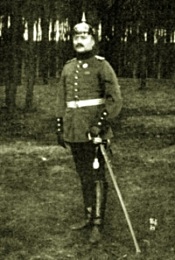
Tanz
Milchweiche Schultern!
Augen flirren, flackern!
Blond und schwarz und sonnengolden
Taumeln Haare, wirren, krampfen,
Schlingen Brücken,
Brücken!
Hin
Und rüber
Taumeln, Kitzel,
Bäumen, saugen,
Saugen, züngeln
Schürfen
Blut
Schweres, lustgesträubtes
Blut!
In die Wunden
Hüpfen Töne,
Sielen, bohren,
Wühlen, quirlen,
Fallen kichernd,
Schwellen auf und fressen sich,
Gatten, gatten, schwängern sich,
Bären Schauer
Wahnengroß!
Hilflos surren um die Lichter
Mutterängste
Nach den Kindern,
Die sich winden,
Winden, huschen
Vor den Tritten,
Die sie packen,
Ihre glasen, sichten Leiber
Schinden, scharren,
Pressen, schleudern,
Tückisch abgemessne Lüste
Jagen unter Brunstgestöne,
Brunstgeächze
Und
Gekrächze!
Durch die Wirrnis
Durch die Flirrnis
Blitzt Verstummen!
Jäh zerflattern
Drängen gellend
An die Decke
Sich die Töne,
Klammern, krallen
Scheu verwimmernd
Am Gebälk!
Glotzen nieder,
Wo mit Wuchten
Schlorrt das Keuchen,
Schlappet
Ringsum an den Wänden
Seinen ungefügen Leib,
Unzahlmäulig
zuckt und schnauft!
An die angstzerglühten Herzen
Reißen flammend hoch die Lichter
Ihre hetzverstörten Kinder,
Die in Irren, Wirren
Zitternd
Ob der ungewohnten Ruhe
Ab sich tasten
Und sich streicheln
Gegenseitig
Hell von Staunen,
Daß sie leben noch,
Sie leben!
Zagig finden sie das Lächeln,
Fluten leise, fluten, fluten,
Reichen summend sich die Hände,
werden warm
Und
Schwingen Reigen!
Da
In Peitschlust, Streitdurst, Quälsucht
Vollgesogen
Vom Gebälke
Stiebt das Gellen!
Schrillt unbändig,
Ueberschlägt sich,
Purzelt, flattert,
Springt und stöbert,
Federt, pumpelt auf
Das Untier,
Das
Mit tausend Füßen aufschrickt,
Trippelt, trappelt,
Trappelt, grappelt,
Gell gedrängelt
Von den Tönen,
Die zerrasseln,
Niederprasseln,
Peitschen, schlagen, fiebern, kosen
Und im Wirbel
Wringen, wiegen
Schwelles,
Blaßhellrotes Fleisch!
Milchweiche Schultern!
Augen . . .
August Stramm
(1874-1915)
Tanz, 1914
• fleursdumal.nl magazine
More in: *War Poetry Archive, Archive S-T, Expressionism, Stramm, August
Thank you for reading Fleurs du Mal - magazine for art & literature